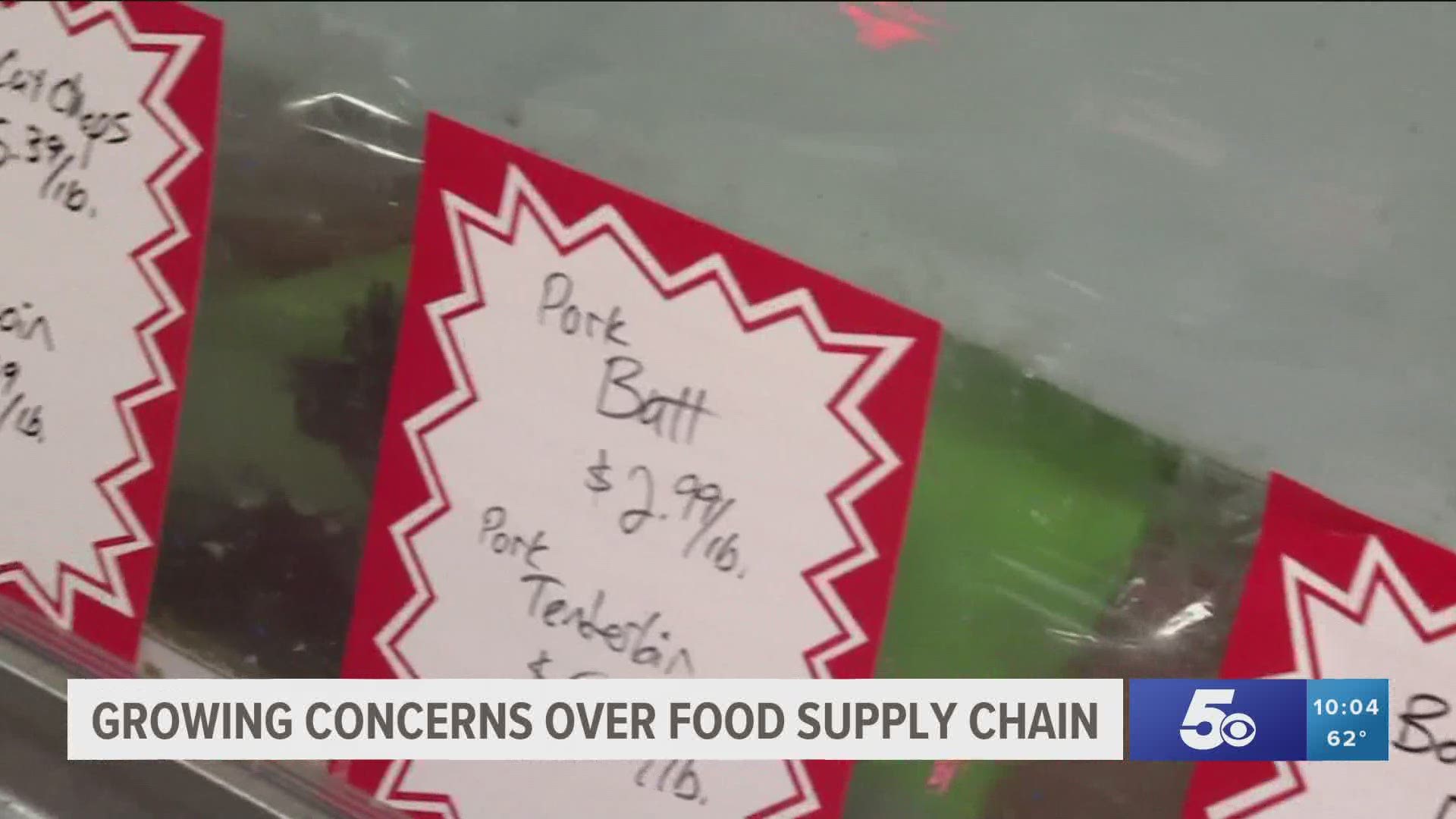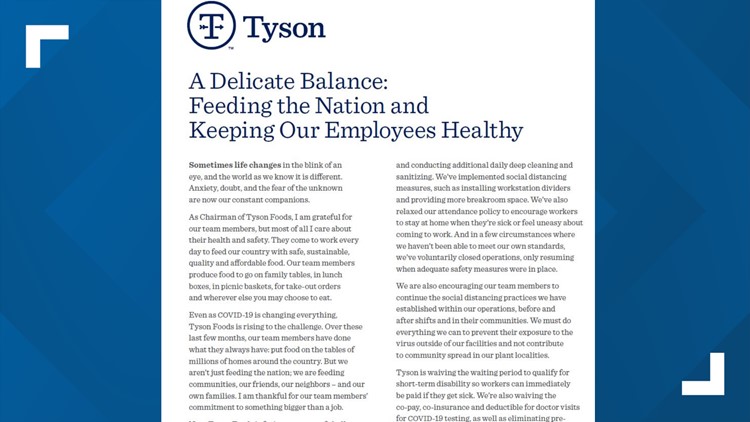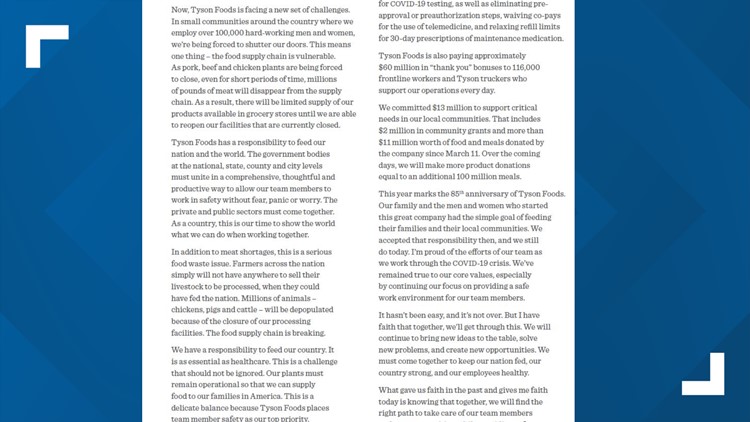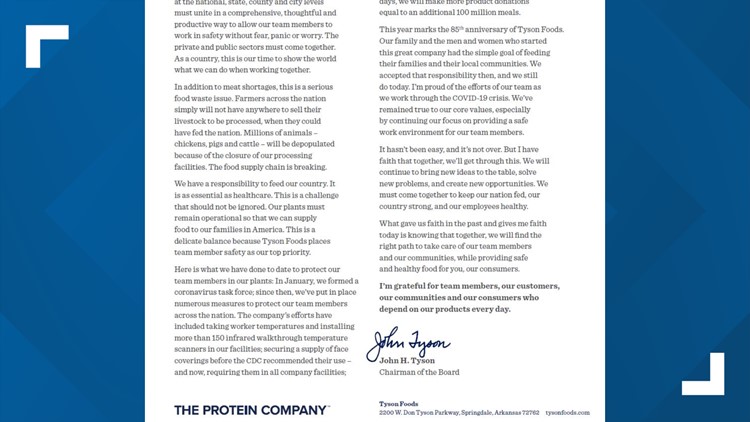Tyson Foods is warning that "millions of pounds of meat will disappear from the supply chain" as the coronavirus pandemic forces more food processing plants to close.
In a full-page ad published Sunday in The Washington Post, the New York Times and the Arkansas Democrat-Gazette, John H. Tyson, chairman of Tyson Foods' executive board, stated that "the food supply chain is breaking."
"In small communities around the country where we employ over 100,000 hard-working men and women, we're being forced to shutter our doors," Tyson wrote in the letter, which was also posted on the company's website. "This means one thing - the food supply chain is vulnerable."
Company spokesman Gary Mickelson told the Associated Press that the Tyson family thought it was important to explain their perspective.
“The letter encourages government leaders to unite to address food supply chain challenges," Mickelson said. "We are taking a proactive approach to balance safety and production by moving aggressively with testing and plant closures when necessary."
The 15 largest pork-packing plants account for 60 percent of all pork processed, so when even one of those plants closes for days or weeks, the consequences ripple across the industry. That has become abundantly clear with two of the nation's biggest plants now closed: Tyson suspended operations at its plant in Waterloo, Iowa. And Smithfield Foods halted production at its plant in Sioux Falls, South Dakota. Each plant can butcher nearly 20,000 hogs a day. Some plants have reopened days after cleaning.
The result is that the nation's pork processing capacity had declined by about 25% as of last week, said Steve Meyer, an industry economist with Kerns and Associates in Ames, Iowa.
Sarah Little, a spokeswoman for the North American Meat Institute, an industry trade group, said: “It’s down across the board right now, so the next couple of weeks we should see how the system works. It’s never been tested like this before.”
Tyson Foods statement
Nationally, although the reduced meat supply is expected to cause consumer prices to rise, expectations are that the increases will be slight. The U.S. Department of Agriculture said late last week that it expects beef prices to climb 1% to 2% this year, poultry as much as 1.5% and pork between by from 2% and 3%.
The United Food Commercial Workers International Union says 10 meatpacking and three food-processing union workers have died so far from COVID-19 and an estimated 5,000 are sick or have been exposed while working near someone who tested positive.
“America’s food processing and meatpacking workers are in extreme danger, and our nation’s food supply faces a direct threat from the coronavirus outbreak, UFCW International President Mar Perrone said in a press release. "Make no mistake, without national safety standards to protect these workers from the coronavirus– more lives will be lost, more workers will be exposed, and our food supply will face jeopardy.”
So far, the meat-processing industry has been able to shift production to open plants to keep a stream of meat moving through the supply chain, said Little, of the meat institute. Some plants that closed have reopened after deep cleanings.
“When one plant goes off-line, the others in the region can try and pick up the slack,” Little said.

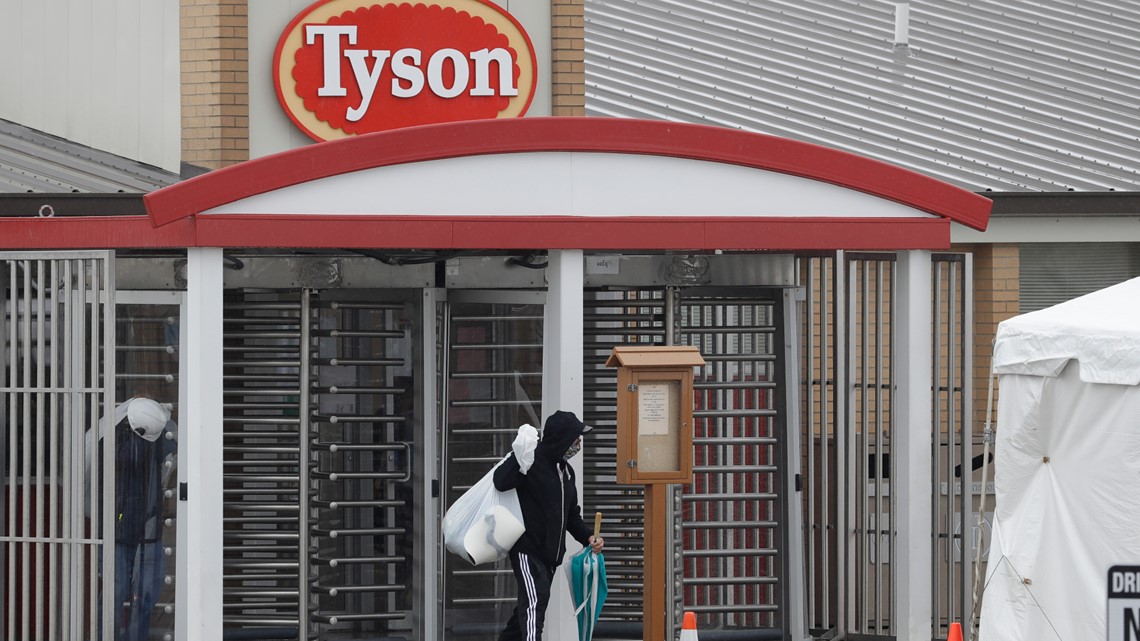
The situation would be more dire if not for record amounts of meat in cold storage, though much of the meat was intended for restaurants that now are largely closed.
Tyson's letter calls for the private and public sectors to unite to help find a safe way for their employees to work.
"We have a responsibility to feed our country. It is as essential as healthcare. This is a challenge that should not be ignored," Tyson said in its letter.
Even though the limit of functioning plants will lead to a limited supply of Tyson meat products in grocery stores, the company said this will also cause a serious issue of food waste.
"Farmers across the nation simply will not have anywhere to sell their livestock to be processed, when they could have fed the nation," Tyson wrote.
The Associated Press contributed to this report.

